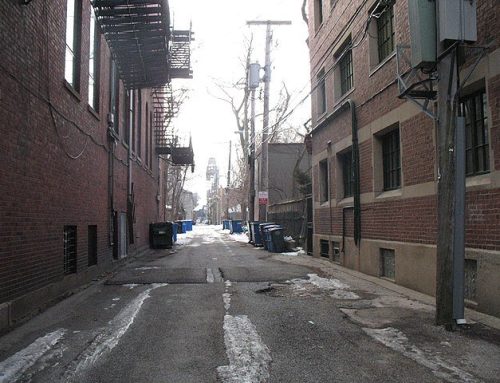By Scott Atkinson
On January 26, I was at home, reading the news, and having a hard time sitting still.
The shock of a new president had not (and still has not) worn off, and story after story was pushing me toward a deeper sense of despair. It was far beyond politics—I grew up in rural Michigan, and Republicans are not foreign, scary creatures to me. It was about the constitution, about America, things with which even I, a journalist, did not realize I felt such a deep relationship. Like a child with its mother, my country felt like a thing that could at times confuse, frustrate, and anger me, but which I knew would always be there.
Suddenly I wasn’t so sure.
It’s easy to dismiss that as hyperbole—I’m not the first one to say it, but it’s the first time I’ve said anything like it. On January 26 I read the headline in the New York Times that pushed me over the edge: Trump Strategist Stephen Bannon Says Media Should ‘Keep Its Mouth Shut.’
And so I did the only thing it feels like one can do sometimes.
I went to Facebook.
I wrote: “I need an assignment.”
You see, for the past few years I’ve been earning much of my living in academia. Journalism had become, as one of my students put it recently, my “side hustle” (a term I like better than freelancing). But it was the beginning of a new semester and had been a while since I’d written anything.
Writing, for most writers, is a need. We feel strange if we’re not doing it, like a plugged drain. But journalism, which is part writing, part something else, isn’t so much a need as a calling, and I had never felt the call so strongly. I didn’t expect anyone to whisk me away to the White House. I didn’t plan on changing the world with a few magical keystrokes. I just needed to do something.
I bet you’ve felt the same way.
I bet you, too, have taken to Facebook, or Twitter, or to ranting to your friends as an unprecedented era in our country stumbles forward.
You feel the need to do something.
I got lucky. I got this job, editing this magazine.
And so I’m asking you to do something. If I may be bold enough to put it another way, I’ll say this: I have an opportunity for you.
You can give me money.
Does that sound like a sales pitch? I hope not. It’s really not. I’m not selling you anything. In fact, anything I or any of our writers produce, you can have for free.
But you see, they can’t do it for free. And they want to do something, too. They want to do good journalism.
We are relaunching this magazine with a stronger, focused mission. I want to know what unites the Rust Belt—and to prove that all of us–in the factory cities, the small rural towns, and in the farmland in between–are connected. There’s a new president in town, and he’s made some pretty big promises to the Rust Belt, and we need people who are here and understand the nuances of what those promises have meant to people. We need to have a voice.
We need our own voice.
That doesn’t mean that every story will be about Trump, his promises, and resistance efforts in the Rust Belt, but it will mean that we will cover it in a Donald Trump era. The Rust Belt, for too long, has been a region that has felt left behind, and it is more important now than ever to make sure that doesn’t continue to happen.
I’ve had a lot of conversations about my new gig lately. And one thing I keep telling people is that I’m not just making a magazine about the Rust Belt. I’m making a magazine for the Rust Belt.
You are not a subject to me. Not a project or a cute story idea I want to pitch to an editor somewhere.
You’re my neighbor. As I’ve already said: We’re all in this together.
And so we’ve started a crowdfunding campaign. You can find it here. Give a little. Give a lot. We’ll give you some good books, or tote bags, or other stuff.
But I’m not selling it to you. I’m asking you to join me.
I’m asking you to do something.







Thank you, Scott, for the urgency of this post, and for its “opportunity.” Writers need to write. Readers need to read. It’s a beautiful symbiosis, and these days, it feels like something crucial to our survival.